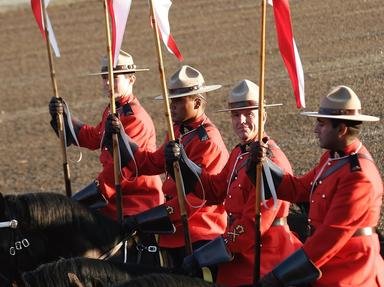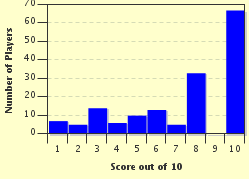Quiz Answer Key and Fun Facts
1. The Canadian maple leaf flag is introduced.
2. What would become the Stanley Cup is awarded for the first time (won by Montreal).
3. Newfoundland becomes the tenth province of Canada.
4. Canada introduces its first National Park.
5. Confederation occurs.
6. Universal Health Care (Medicaid) is introduced with the Medical Care Act.
7. Both the Battle of Vimy Ridge and the Halifax Explosion occur.
8. Canada wins a record-setting number of medals as the home country at the Vancouver Olympic Games.
9. Construction of the Canadian Pacific Railway commences.
10. Nunavut is introduced as the third Canadian territory.
Source: Author
kyleisalive
This quiz was reviewed by FunTrivia editor
bloomsby before going online.
Any errors found in FunTrivia content are routinely corrected through our feedback system.

